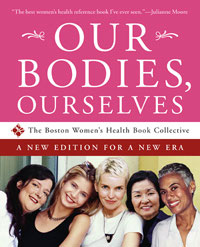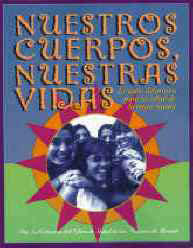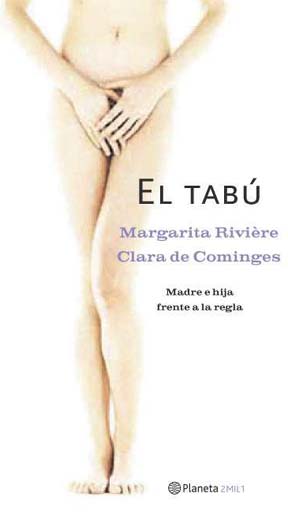COMIC STRIP: "A Visit to the Museum of Menstruation"
DIRECTORY of all topics (See also the SEARCH ENGINE, bottom of page.)
CONTRIBUTE to Humor, Words and expressions about menstruation
and Would you stop menstruating if you could?
Some MUM site links: homepage | LIST OF ALL TOPICS | MUM address
& What does MUM
mean? | e-mail the museum | privacy on this site | who runs
this museum?? |
Amazing women! | the art
of menstruation | artists (non-menstrual)
| asbestos | belts
| bidets | founder bio
| Bly, Nellie | MUM board
| books: menstruation and menopause (and reviews) | cats | company
booklets for girls (mostly) directory | contraception
and religion | costumes | menstrual cups | cup usage | dispensers | douches, pain, sprays
| essay directory | extraction
| facts-of-life booklets for girls | famous women in menstrual hygiene ads | FAQ
| founder/director biography | gynecological
topics by Dr. Soucasaux | humor | huts | links | masturbation
| media coverage of MUM | menarche
booklets for girls and parents | miscellaneous
| museum future | Norwegian
menstruation exhibit | odor | olor
| pad directory | patent
medicine | poetry directory | products,
current | puberty booklets for girls and parents
| religion | Religión
y menstruación | your remedies for
menstrual discomfort | menstrual products safety
| science | Seguridad de
productos para la menstruación | shame
| slapping, menstrual | sponges
| synchrony | tampon
directory | early tampons | teen
ads directory | tour of the former museum
(video) | underpants
& panties directory | videos, films directory
| Words and expressions about
menstruation | Would you stop
menstruating if you could? | What did women
do about menstruation in the past? | washable pads
Leer la versión en español de los siguientes temas: Anticoncepción y religión, Breve reseña - Olor - Religión y menstruación - Seguridad de productos para la menstruación.


Continued to next earlier News & Notes
NEW this month (news & letters below, 23 Dec. 2005):
The Art of Menstruation: Gina -
Seguridad de productos para la menstruación
(Translation of the MUM safety page into Spanish
by María García) - Three pre-WWII European ads: Nefa
(the Netherlands), Tampax (the Netherlands) and
Modess (Great Britain) - Sanitary napkin disposal bags, mostly from the Netherlands - Humor
Would you stop menstruating if you could? New contributions
Words and expressions
about menstruation: New contributions:
Australia: Sitting on Uncle Billy's knee; England: I'm having the red painters in, I've got
the decorators in; India: Not at home, OD,
Maas, Theetu; Ireland: I've got my flowers,
I've got my peggers, I've got my yokes, On the rag (or jam-rag); U.S.A.: Flooding, Flooding of biblical proportions, Her lady
business, I'm X, Mosquito bite, Out of order, Rip cords
What did European and American women use for
menstruation in the past?
Humor
You can get pregnant by having intercourse during your period
From an e-mail with an expert:
The appearance of cervical mucus that supports sperm life hanging around in anticipation of ovulation can appear as early as days 5 to 8 of a woman's cycle, and she may still be experiencing her menses. [Day one of the cycle is the first day of bleeding.] The appearance of cervical mucus early in the cycle is followed shortly by ovulation, say on day 9 or 10. This accounts for women who have intercourse during menstruation and become pregnant. Typically this occurs in women who have short menstrual cycles (21 to 25 days), often perimenopausal women. Ovulation does not occur during menstruation per se, as the hormonal mechanisms are not conducive to ovulation until the menses has ceased.
Sometimes women will mis-identify spotting associated with ovulation as menstruation, especially women who are unfamiliar with how to identify a true menstrual bleed.
Study That Discredited Hormone Replacement Therapy Was Flawed, Experts Say
From the Intelihealth Web site:
(The New York Times News Service) -- The Women's Health Initiative was a landmark study involving 27,000 participants that caused many women to discontinue their use of hormone replacement therapy.
For the whole story, click here: http://www.intelihealth.com/IH/ihtIH/WSIHW000/333/8011/442964
Volunteer for a research study
A new research study is examining the experiences of women with headaches who are between 40 and 56, and have had hysterectomies. If you are interested in learning more about this study, please contact: Dr. Peggy Moloney, RN, PhD, at Georgia State University (U.S.A.). Office phone: (U.S.A.) 404-651-1717; Email mmoloney@gsu.edu
Maclean's magazine publishes cover story about stopping menstruation for a looooong time. See part of printed article, read the whole online story.
The Canadian weekly news magazine's cover story of the 5 December issue concerns the hormone pill for which Wyeth is seeking FDA (the American Food and Drug Administration) approval. Whereas the Seasonale pill stops all but four menstrual periods a year, this one would stop menstruation indefinitely. Read the online version of the story.
Besides interviewing many people for the account, including me, the magazine asked for (and got) dozens of images of menstrual products and ads from this museum to illustrate the piece. See the cover and opening pages of the article.
The magazine also quoted from your responses on the "Would you stop menstruating if you could?" page. The New York Times and the British New Scientist magazine have also quoted from your comments in the past. Send yours - they're important!
Tampon crafts for friends or the Christmas tree!
They're a bit more open in China
To the menstruation museum,
These days, Western women keep the experience of bleeding well hidden.
In May 2004, using a public toilet in central Beijing, I was shocked to be squatting over a concrete trench - with no cubicles - next to two other women, who were examining their bloody sanitary pads. I had never seen anyone else's menstrual blood in my life before (I am over 50) and I was quite shocked by the experience. Maybe it was the lack of privacy as well.
****
Oxford, England[I wrote the contributor that when I was a soldier in Germany, I had to use a public toilet in the main train station in Frankfurt, the biggest station in Europe. At the time (it's been modernized) men peed against a wall in the cavernous men's room, the urine running to a trough even with the floor. There were no barriers separating one, um, pee-er from another. And while performing the act I had to alternately lift both feet so a Turkish cleaning lady could mop the floor.
Having just arrived in Germany from prudish America, I too was shocked.]
When is the mom "not at home" in southern India?
Thank u for ur amazing website. I laughed and laughed and felt good after having the PMS blues today! Here goes a Tamil (language spoken in the South of India) "classic" joke. In Tamil, the code for mom having periods is "not at home" (poorly translated to out-of-doors). Anyway, owing to the segregation criterion in some orthodox families, it is common for mom to be in a separate room of her own and her visitors being told that she is "not at home". But we kids thought dad was being rude telling such a lie! So we upped our voices and said, "But she is in the guest room"!
I asked the writer to elaborate on the menstrual customs:
Well! To begin with, "segregation" is practiced mainly in homes where a lot of ritualistic services for "God" are performed. In other words, it translates to the priestly classes in India. This I know from personal experience. However, in my talks and close communications with weavers, washermen, milkmen, etc., they also observe it. The woman is considered at a "weakened" state and is given total rest. Depending on their jobs, the taboo object was determined. E.g., for the weaver, his wife could not enter the trestle/ loom room, for the milkman, his wife could not milk the cow or else the milk would dry up! For a washerman, his wife couldn't touch the clothes or else their water source would dry up, for a potter, the pots she made would come out cracked and so on and so forth.
In most Indian homes (made in the traditional design), there always was a "birthing" room and that was used by the menstruating woman - for privacy and rest. Food will be served in her room. The entire family manages with dad's cooking and the kids take turns learning to cook from dad!!!! (Sometimes with mom's advice from the "room.")
In those days, one of the main jobs of women (even today, in many rural communities across India) was to carry the family's water needs on their head and hip. When menstruating, carrying such loads has an adverse effect on the uterus. To prevent this, they forced these women to take a "break"- a "water break" shall we say?!
All these "modern" ideas of equality has only led to greater uterine collapse and other menstrual and uterus related problems. I for one have been practicing a yogic lifestyle for some years now and have discovered that the aura and energy change during those days of flow. When we begin to experience the shift in "prana" (subtle life force energy) we realise that there is lower prana during menstruation. If the mother is the main provider of food for her family, then she affects the "prana" level in the food cooked by her as her body will be taking in the prana from the food directly before it even reaches the table. Food, if you look into it from a yogic perspective is not carbs, proteins, minerals and such - it is high to low prana. Hence women are discouraged from cooking these three days.
When I was younger I used to be angry with my family treating me like an "untouchable" those three days. But at the same time I respected my grandparents and parents. So I listened to them and would ruminate over why and how such a tradition came into existence. One of those teen theories was that before indoor plumbing, it must have been very difficult for the woman to even take a shower as her bath water had to be lugged from a nearby well or river as she otherwise would "pollute" the water source with her "effluents"! And it goes back to the "water carrier" theory! She was the one who actually lugged the water and there was no way her husband or brother or father would budge from their "couch" to carry cleansing water for her! [!!]
Even today, access to piped water is a pipe dream for many women who are suffering many infections of the vagina because of lack of water. I sincerely hope the women and concerned men in this Web site extend their support to make water more accessible to millions of women across the world.
I truly believe women should take some "time off" during those 3-5 days. No carrying laundry loads or "water"! Knowing moms and knowing dads, moms feel so indispensable that they will never sit down unless forced into a "corner," literally! And dads will never give moms a real break unless forced by tradition!! (Here in the U.S., the poor mom gets one day off on Mother's day.) Dah! She needs to get 3 days off every month!
To a healthier generation of women who deserve "time off" for the fact that they were chosen by nature to be mothers! ~ ****
Some more "words" to mean periods - OD (short for out of doors), "theetu" in Tamil, Maas in Hindi (literally means month).
[The Japanese use a character - here, and scroll down to the end of the section - showing a woman sitting on a menstrual pad in the corner of a room to mean "restful." And some cultures today and in the past also segregate women during menstruation: see other Indian customs here and here and see some menstrual huts.]
She had a bad experience with Seasonale
I recently was taking Seasonale birth control. I stopped taking the pill because I had bouts of light-headedness and extreme nausea. Since I stopped taking Seasonale, I have had numerous symptoms of menopause (hot flashes, night sweats, rapid mood swings). I am 28 years old and vow to never take another birth control pill again. This product should not be on the market. I was excited to start taking Seasonale because of the "convenience" of only having 4 periods per year. I honestly thought it would save me a little money in the long run. It has cost me more, due to numerous doctor visits. I feel this product is extremely unsafe and should be taken off the market and Barr Pharmaceuticals should be sued for all of the hell they have put me through.
Thank you
****
She likes MUM!
Oh Harry, I have spent the last hour or so laughing and generally enjoying myself looking over your site. I'm currently "luteal" and cramping/bloated/miserable and in looking for something to relieve my misery now (at 4 a.m.) I found your site. The "terms of endearment" [Words and expressions for menstruation] for the period have cracked me up. My husband says I'm "out of order" and calls tampons "rip cords," but after reading some of the terms, I'll have to have some new phrases for it.
Would I stop my periods? In a heartbeat. I started late (around 16) and have never been particularly regular. I began taking the Pill at age 19 and took it to age 26. From age 26 to 31 tried to become pregnant, with no success - had been told by doctors that my fertility was "suspect." After resigning myself to childlessness, became pregnant at age 32. The pregnancy was uber-complicated, ending at 24 weeks. I developed severe pre-eclampsia and HELLP syndrome and nearly died. My son s pent 4 months and 5 days in the hospital. I begged for hysterectomy while undergoing the emergency c-section that saved both our lives but was refused (I don't understand the logic behind this refusal - I was DYING at the time and any subsequent pregnancy will likely have the SAME EFFECT!) It's now three years later; my son is healthy and wonderful but my periods are messy, painful, and debilitating. I have the same problem as many contributors to the "stop my period?" page - extreme flow soaking through super-sized tampons and pads; messy leakage to clothing; and even overflowing the cup (and yes, I empty it frequently). The worse part for me, though, is the fear that despite hubby's vasectomy I may become pregnant again. This "reproductive ability" is not a joyous thing for me - it is a life-threatening fear. If I could remove that fear from my life, I would jump at the chance.
Finally, I love your cats [here]. Their names are priceless. I have four (sadly down from five; one died during my ill-fated pregnancy due to advanced age) and they are indeed my "other" children.
Thank you for a wonderful Web site. I enjoyed it immensely.
****, age 34, from suburban Atlanta, GA; married, one child
Psalm 37:4 "Enjoy serving the LORD, and HE will give you what you want"
Read about Jewish purity laws
Mr. Finley,
Here are the FACTS regarding Jewish Family Purity Laws:
http://www.neveh.org/morgan/nidah/nidah.html
Please post!
Continued to next earlier News & Notes




